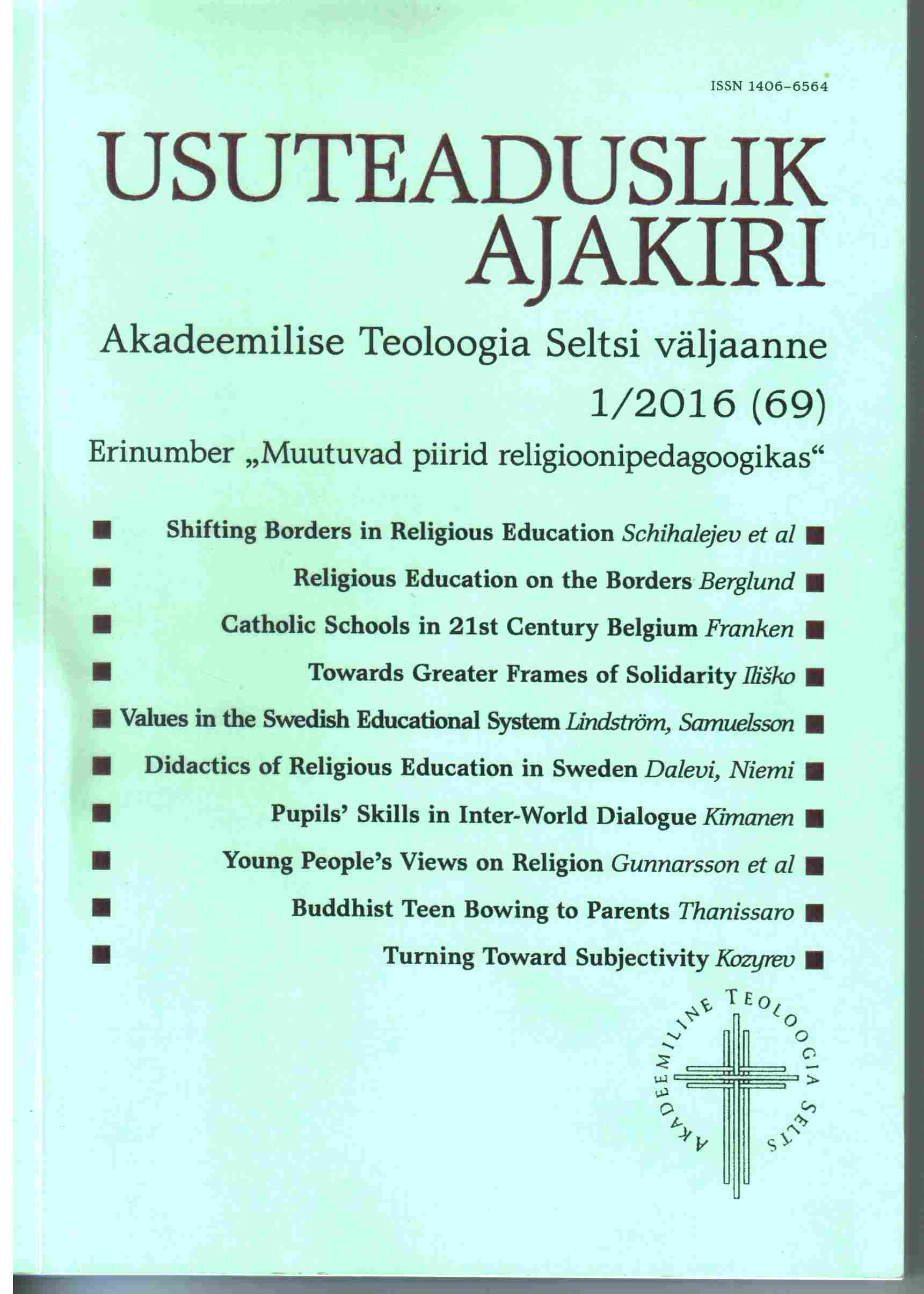Turning Toward Subjectivity in Religious and Values Education Research
Turning Toward Subjectivity in Religious and Values Education Research
Author(s): Fedor KozyrevSubject(s): Education, Metaphysics, Epistemology, Theology and Religion, Hermeneutics
Published by: Akadeemiline Teoloogia Selts
Keywords: religious education;
Summary/Abstract: New developments in religious and values education are determined considerably by epistemological factors. The turn toward subjectivity both in educational practice and research marks the big paradigm shift in late (or post-) modern culture from scientific ideals of natural sciences to that of humanities. Rehabilitation of metaphysics, awareness of intentionality and wider understanding of rationality are parts of the process stimulating a more creative approach to religious studies and teaching. Opened first in phenomenology, this humanitarian approach was later described as developmental or learning-from-religion approach considering religion neither as a stance of belonging, nor as an external fact, but rather as a personal gift. The paper offers a framework for conceptualization of the paradigm shift and for the analysis of humanitarian methodology as distinct from the methodology of natural sciences. Eight premises specific for the former and useful to draw a borderline between the two are presented. They are existential, phenomenological, hermeneutic, constructivist, holistic, teleological, idiographic, and dialogical premises. Two strategies for dealing with new epistemological situation in educational research are described. Examples are given on how they work in the field of religious and values education research.
Journal: Usuteaduslik Ajakiri
- Issue Year: 2016
- Issue No: 1 (69)
- Page Range: 127-141
- Page Count: 15
- Language: English

